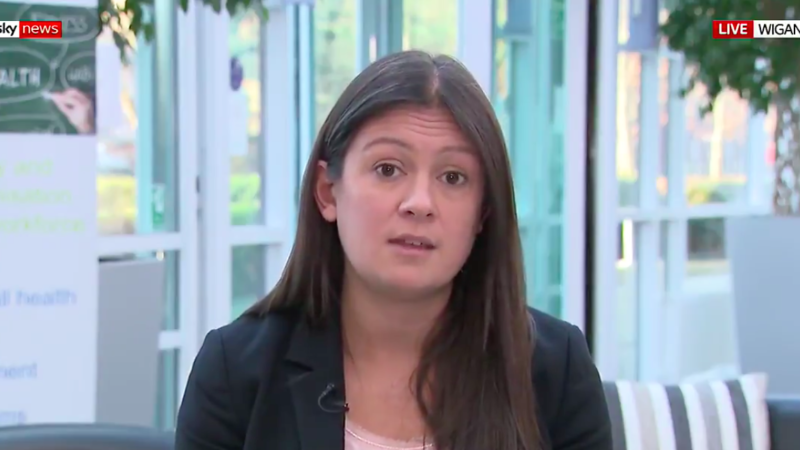
Last week, reality hit. Leaving the EU without a deal and without an orderly transition is not only a fast-approaching legal reality, but one that now commands significant public support. In Wigan, I have heard this on the doorstep and in my surgeries for some time and views are hardening. Alongside thousands of jobs in towns like mine, access to food, medicines, security and travel are at stake. If you believe, as I do, that the cliff edge must be avoided, it’s time for new thinking.
That’s why a group of us, including Stella Creasy, Caroline Lucas and Jon Cruddas, have tabled an amendment to the government’s so-called ‘Plan B’ to allow the people back into the conversation and use a citizens’ assembly to break the deadlock. This approach has significant backers, from Gordon Brown, the Irish Labour Party and Compass to Damon Albarn, Hope Not Hate and the RSA. Parliamentary supporters include MPs, like Alison McGovern, who are in favour of a second referendum and those like me who are not. Crucially, all options are considered. Some citizens’ assemblies in the past have recommended a referendum. Most have not. This would be an open forum with all options up for discussion – a democratic exercise with everything on table: May’s deal, an alternative deal, no deal and a fresh public vote. A true and fair debate.
Whatever it recommends, it will not let parliament off the hook. Hard choices have to be made and only parliament can make them. But three years on from the most divisive referendum campaign in living memory, we cannot go on arguing about “the will of the people” without ever consulting on what that really is in practice. That’s why we believe a representative group of 250 citizens, supported by experts to consider the evidence and seek common ground on the way forward, provides the only route to help parliament break out of this circular conversation.
In recent weeks, we have spoken to academics and participants from citizens’ assemblies in Ireland, Iceland and Australia to explore the length, cost and logistics. We’ve found that it would be feasible to run a citizens’ assembly over 10 weeks, allowing participants to consider the withdrawal agreement and make recommendations to parliament for a way forward. Costs include participant selection, venue hire and a secretariat. They vary depending on size, but all models pale in comparison with the expense of a general election or referendum, which cost well over £100m. It would likely require a request for a short extension of Article 50 – but then so do all the alternatives.
Brexit is deeply controversial, but so too are issues like abortion, for which a citizens’ assembly in Ireland reached a consensus in a matter of weeks. The safety of participants was guaranteed by clear arrangements on reporting and identity disclosure. Referendums are by nature divisive forcing us into binary choices. Citizens’ assemblies, on the other hand, allow us to negotiate priorities and find common ground. Some argue the issue is just too complex, but in recent years I have been struck by how much richer and more meaningful conversations about Brexit are with my constituents than those we have in parliament, where very few people are still listening.
Their value has long been recognised in the UK where government and civic groups have used citizens’ assemblies on issues from housing to Brexit. In 1994, the IPPR proposed they should become a feature of UK democracy in a report co-authored by Liz Kendall, now one of the chief proponents for their use to break the Brexit deadlock.
Three years ago, the EU referendum result surprised many in Westminster and Whitehall who, for decades, failed to listen to voices from towns like mine. We cannot afford to shut the people out any longer. There is no route to a Labour government that doesn’t run through Remain-voting cities and Leave-voting towns, and no future for the country. Jeremy Corbyn rightly recognised that last week when he said: “Any political leader who wants to bring the country together cannot wish away the votes of 17 million people who wanted to leave, any more than they can ignore the concerns of the 16 million who voted to remain.” Every community in this country is home to people who are passionate supporters of both Leave and Remain. They must be heard. It’s time to reset the conversation and let the public back in.
Lisa Nandy is MP for Wigan.
You can also register to attend our event in parliament on Wednesday at 6pm here.




More from LabourList
Nudification apps facilitate digital sexual assault – and they should be banned
Diane Abbott suspended from Labour after defending racism comments
Labour campaign groups join forces to call for reinstatement of MPs